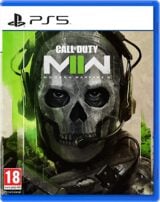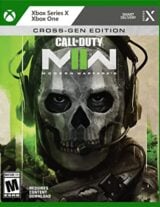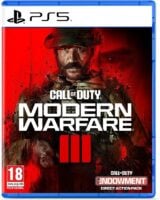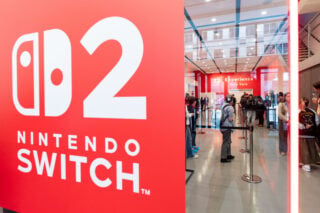In the age of TikTok and Fortnite Festival, it’s time for DJ Hero 3
For a generation obsessed with remixing everything, DJ Hero is a natural fit
Jordan Middler
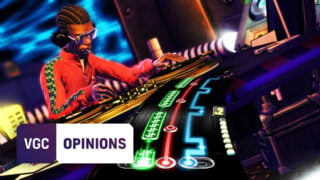
Let me take you back to 2009. Barack Obama was president, Kanye West was interrupting future icons and, for some reason, teenagers were popping the plastic out of 3D glasses and wearing them to school. And the world of gaming was amid a rhythm game Gold Rush.
We had Guitar Hero and Rock Band duking out in the main event, with tough pub quiz answers like Rock Revolution and Power Gig: Rise of the Six String making up the numbers. However, all of those games shared a fairly similar Cathouse-adjacent sensibility.
Back when the production of plastic instruments caused 90% of the world’s carbon emissions, it was hard to stand out from the crowd.
Enter DJ Hero. DJ Hero took the plastic instrument formula that was being refined by its big brother, the Guitar Hero series, and traded spikey wristbands for Beats by Dre. The game used a special deck peripheral with three buttons, each corresponding to a lane during gameplay.

The disc also spun, (because what would even be the point if it didn’t) and was accompanied by a crossfader, which was heavily used in harder levels. It was a bit like Amplitude mixed with Guitar Hero, but the selling point was the absolutely astonishing soundtrack.
DJ Hero, and its criminally underplayed sequel feature the best soundtrack to any music game ever. Hundreds of bespoke remixes, including some from the world’s biggest DJs. Almost every remix in the game featured a colossally huge artist, making the mechanics of creating the soundtrack tougher than even the hardest in-game track.
It was hard enough to wrangle the licenses for hundreds of songs for a generic music game in the mid-2000s, but doing that with the caveat that every song would be mixed with a completely different song? An IP lawyer’s nightmare.
Can you imagine being the person tasked with going to the Michael Jackson estate to license Want You Back to mix with Semi-Charmed Life by Third Eye Blind? Sure, the resulting track sounds like something you’d find on your TikTok For You page at 3 in the morning, but it’s cool that it happened. Speaking of TikTok…
“It was hard enough to wrangle the licenses for hundreds of songs for a generic music game in the mid-2000s, but doing that with the caveat that every song would be mixed with a completely different song? An IP lawyer’s nightmare.”
There’s never been a better time to bring DJ Hero back. The democratization of not only music but music creation tools means that the exact type of ridiculous remixes that were a fixture of DJ Hero are all over TikTok. Open TikTok now and if you’re on the same side of the app I am, it won’t be long until you’re faced with Cotton-Eye Joe mixed with Dido’s Thank You.
There’s also clearly a remergeing appetite for music games. Fortnite, the biggest game in the world, doesn’t suddenly acquire Harmonix and develop Fortnite Festival if no one is interested in it.
Just this week, Billie Eilish, one of the biggest pop stars in the world, hasn’t only been added to Fortnite as a skin, but some of her biggest hits have been added to Fortnite Festival. This all coincided with the announcement of her next tour.
Music companies are going straight to young people through games as part of the marketing machine, and a dedicated music game seems like a natural place for that, rather than a mode buried in Fortnite.

Fortnite’s pioneering work in virtual consoles is a template for what could be a key part of a DJ Hero 3. Instead of everyone standing around in a field watching a 100ft Travis Scott, what if instead, you’re playing along to the song in-game?
The biggest stumbling block, in my opinion, is the plastic turntable, but controversially, I don’t think a DJ Hero 3 should be solely centred around that. Sure, you absolutely need it to be an option, and partnering with a brand like PDP to produce bespoke new turntables would sell well to the hardcore like me, but as Fortnite Festival also shows, if you make a music game controller focussed, you instantly knock down a massive barrier to entry.
Another key influence for a potential new entry, also from Harmonix, is Fuser. Fuser was the last thing produced by Harmonix before being subsumed into the Epic machine. Essentially it paid presumably millions of pounds for the rights to let players mess around with the stems of hundreds of popular songs.
Do you want to use the vocals of Smash Mouth’s All-Star with the drums from DMX’s X Gon’ Give It To You? First of all, you have great taste, secondly, Fuser lets you do exactly that.
This level of creativity is something that would be absolutely key to a new entry in the series, as well as the ability to share these mixes with other players. Sure, a soundtrack for 100 songs is great, but for something like this to have legs (and it would have to if you’re selling a big plastic turntable), you’d need a community actively supporting it with remixes. The obvious opportunity to sell new songs via microtransactions is another element that would clearly appeal to men in suits.
You’d need an enormous amount of money to do it, but the “Hero” brand is now in the Xbox family, so they’d have the backing. You’d also need to do a hell of a lot of rights work to clear the music, but in the age of Luke Skywalker fighting Ninja on a map based on Avatar: The Last Air Bender, IP law is more of a Wild West than ever.
You’ll struggle to find anyone who doesn’t remember DJ Hero fondly. Sure, it was expensive and came around right as music games reached their critical mass and sharp decline, but when the revival of music games is discussed, it shouldn’t be overlooked.
Sure, we all want Rock Band 5 and Guitar Hero 10, but in the age where I can open my phone and hear Old Town Road remixed with God Save the Queen, DJ Hero has never been a more natural fit.
